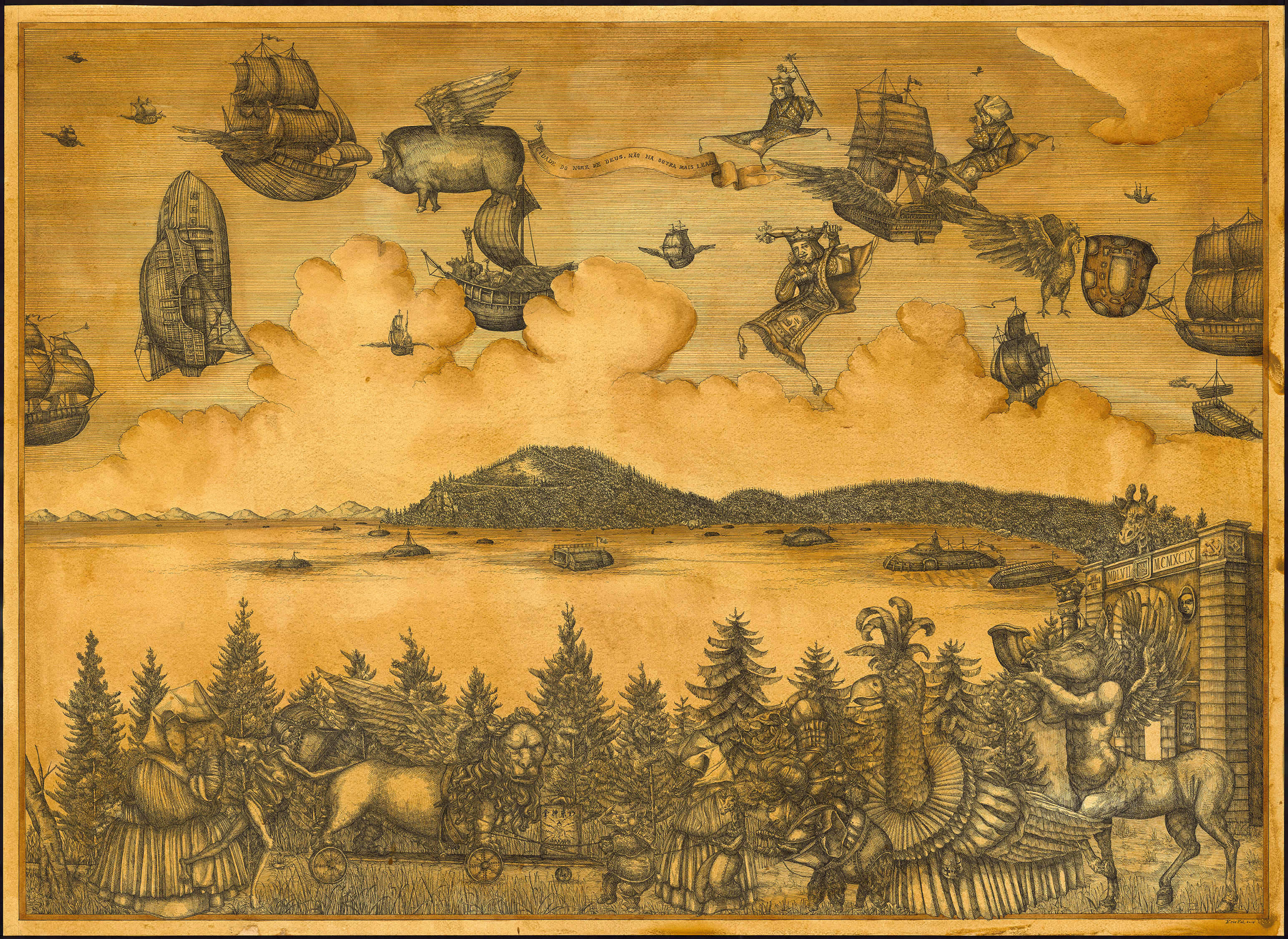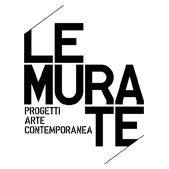International seminar Curated by Le Murate Progetti Arte Contemporanea e European University Institute Is it still possible to speak about identity in a strongly globalized and contaminated context, marked by uprooting, mobility and migration? The re-emergence of nationalisms reveals a new urgency concerning the sense of belonging that contradicts exsiating cultural hybridization. This day aims to provide insights, analysis and reflections about global identity dynamics, with particular attention to cultural production, the hybridization of languages and postcolonial narratives. P anel 1 14.00-16.30 Cosmopolitismo, diaspora, ritorno del nazionalismo Introduzione Anna Triandafyllidou The Return of the National? Monica Sassatelli Europe as a cosmopolitan identity Nick Dines City identities between the global and the national: reflections from opposite sides of the Mediterranean Panel 2 16.30–19.00 L’arte contemporanea tra dimensione globale e locale Introduzione Valentina Gensini Global Identities Jasper Chalcraft Diaspora artists and global identities Jeremie Molho Plural or fragmented? Identities in a globalising art market Round table with exhibition curators GLOBAL IDENTITIES. Postcolonial and Cross-cultural Narratives Valentina Gensini, Justin Randolph Thompson, Livia Dubon Bohlig,Daria Filardo, Matteo Innocenti, Veronica Caciolli, Caterina Scarabicchi Free participation, advanced registration required. Certificate of participation will be issued. Information and reservations: info.pac@muse.comune.fi.it – t. 0552476873 _____________________________________________________ Abstract Panel 1 14-16,30 Cosmopolitismo, diaspora, ritorno del nazionalismo Introduction The Return of the National? Anna Triandafyllidou While global trade, information technologies, cheaper and faster transport, all militate against the state and its sovereignty, and seem to undermine the importance of the nation, we witness today a comeback of nationalism. This often takes the form of xenophobia, closure, a desire to ‘take back control’, erect borders, separate from other countries, even from fellow EU member states. My introductory comment seeks to understand why is this happening and why instead of global identities we see national identities re-emerging. Europe as a cosmopolitan identity Monica Sassatelli The European Union’s motto ‘united in diversity’ sounds increasingly out of touch with the current cultural and political climate. Yet exploring the possibilities of plural and open identities, as the European ideal does, has a renewed relevance precisely in the current situation. A cosmopolitan Europe is not just a utopia but a practical ground for EU institutions in search of legitimacy. It opens up opportunities for dialogue and exchange in a world increasingly nostalgic for strong and exclusive collective identities. City identities between the global and the national: reflections from opposite sides of the Mediterranean Nick Dines How far do global connections – from the increasing presence of multinational firms to the cultural diversity resulting from international migration – define urban life today and, as such, redefine the ways in which a city’s identity is produced and perceived in relation to the nation? This contribution will consider the different perspectives offered by Rome and Rabat, two capital cities in the Mediterranean region, in order to highlight the shifting implications of ‘global identity’ at the urban scale. PANEL 2 Contemporary Art between global and local dimension 16:30 – 19 Global Identities Valentina Gensini Is it still possible, in the global dimension, to keep and narrate an identity rooted in one’s own culture? How do postcolonial narratives and hybrid cultural dimensions work? What sense does it have to talk about identity in the current context, strongly globalized and contaminated, marked by uprooting and migration? Diaspora artists and global identities Jasper Chalcraft What do diaspora artists tell us about global identities? For many diaspora artists identities are tools for survival, tools that help them negotiate between different artworlds and different social expectations. National identities, racial categories and identity conflicts are examined in the work of Shambuyi Wetu and Yannick Delass, two Congolese artists living in São Paulo for the last three years, and by Lenna Bahule, a Mozambican musician who works between São Paulo and Maputo. Discussing my collaborations with them, we learn how the creative African diaspora use identities creatively, and how they navigate the difficulties of cultural inclusion in Brazil and beyond. Plural or fragmented? Identities in a globalising art market Jeremie Molho In less than 20 years, the geography of the global art market has undergone a radical transformation. From concentrated in a few West European and North American cities, it expanded globally as new centres emerged in Asia, Latin America and the Middle East. This went along with the multiplication of galleries, art fairs, and cultural institutions in these emerging cities, and created greater visibility for artists from these regions. But has the global art market become “postcolonial” and “cross-cultural”? My presentation will provide some answers to this question, based on fieldwork I conducted over the last six years in Istanbul, Singapore, Hong Kong, and Doha. I will show how the different actors of these art worlds (collectors, gallery owners, curators, artists, art fair directors…) mobilise local, regional and national identities as a resource to establish their stance on the global art market. GLOBAL IDENTITIES. Postcolonial and Cross-cultural Narratives Round table with exhibition curators Valentina Gensini, Justin Randolph Thompson, Janine Gaelle Dieudji , Livia Dubon Bohlig, Daria Filardo, Matteo Innocenti, Veronica Caciolli Five exhibitions, focused on five different cultural and geographical contexts, address this oxymoronic and problematic investigation into the search for identity in the global context. Some reflection about the exhibition projects, the artists, the practices. Jasper Chalcraft works on ‘difficult heritage’ as a Jean Monnet Fellow at the Robert Schuman Centre of the European University Institute, and as a member of the EU-funded Heritage Contact Zone project. This work focuses on finding practical ways to work with ‘difficult heritage’ that is often the cause of conflict. He also co-coordinates a project working with diaspora African artists and musicians in São Paulo called Being/Becoming African in Brazil: migrating musics and heritages. Nick Dines is an urban sociologist and is currently Jean Monnet Fellow at the Robert Schuman Centre for Advanced Studies at the European University Institute, Fiesole. He is the author of numerous publications on contemporary urban change and international migration, including the monograph Tuff City: Urban Change and Contested Space in Central Naples (New York, 2012). Among his present projects, he is developing research on the politics of cultural diversity in Rabat and Cape Town. Jeremie Molho is research associate at the cultural pluralism research area of the global governance program at the Robert Schuman Centre for Advanced Studies of the European University Institute in Florence. He received a BA in Middle Eastern studies and a MA in urban studies from Sciences Po Paris and completed his PhD in geography in 2016 at the University of Angers. His dissertation analysed the emergence of cities as new centres of the global art market. He conducted fieldwork in Istanbul, Singapore and Hong Kong. His current research investigates diversity management regimes in Asian global cities and focuses on Doha and Singapore. Monica Sassatelli is a cultural sociologist, with particular interest in urban and European cultural policies. Her research focus is on cultural institutions and events, in particular urban festivals and biennials. Among her publications, the books Becoming Europeans. Cultural Identity and Cultural Policies (Palgrave, 2009) and Festivals and the Cultural Public Sphere (co-edited with L.Giorgi and G.Delanty; Routledge, 2011). Anna Triandafyllidou is Professor at the Global Governance Programme (GGP) of the Robert Schuman Centre for Advanced Studies (RSCAS), European University Institute. At the GGP she coordinates the Research Area on Cultural Pluralism. During the period 2004-2012, she was Senior Fellow at the Hellenic Foundation for European and Foreign Policy (ELIAMEP) in Athens where she headed a successful migration research team. She has been Visiting Professor at the College of Europe in Bruges since 2002 and she is the Editor-in-Chief of the Journal of Immigrant and Refugee Studies. She received her PhD from the European University Institute in 1995 and held teaching and research positions at the University of Surrey (1994-95), the London School of Economics (1995-97), the CNR in Rome (1997-99), the EUI (1999-2004) and the Democritus University of Thrace. She was a Fulbright Scholar-in-Residence at New York University in 2001, and a Colston Fellow at the University of Bristol (2001-2002). She serves as national expert in the OECD Network of International Migration Experts (formerly SOPEMI) and acts as an evaluator of research projects for the European Research Council. She has also worked as an evaluator for DG Home policies on migrant integration (2016-2018) and has been consulted by the European Parliament on high skill migration policy reform (2016). Valentina Gensini, art historian and curator, has concentrated her talent and energy in the realm of meuseums since 2005, working with the Soprintendenza fiorentina, Gallery of Modern Art at Palazzo Pitti. Beginning in 2007, she served as a consultant for the Foundation Palazzo Strozzi of Florence, where in 2009, she curated the international project Green Platform, Art Ecology Sustainability. In 2010 she was a member of the Cultural Commission for the selection of projects for Estate Fiorentina for the city of Florence. In 2011, for the city of Florence, she shifted roles and became artistic director of Notte Bianca, dedicated entirely to contemporary art. She curated the Visual Arts section for Fabbrica Europa 2012. She founded and coordinates the IED international master in Arts Management. From 2014 to 2017 she was founder and scientific director of the Museo Novecento. She currently directs Le Murate. Progetti Arte Contemporanea, a civic space dedicated to contemporary arts, with the general coordination of Le Murate, and is the artistic director of the RIVA Project. She is a member of the Board of Directors of the Accademia Gallery and of the Primo Conti Foundation. With the contribution of Regione Toscana, ToscanaInContemporanea2018 program ![]()


